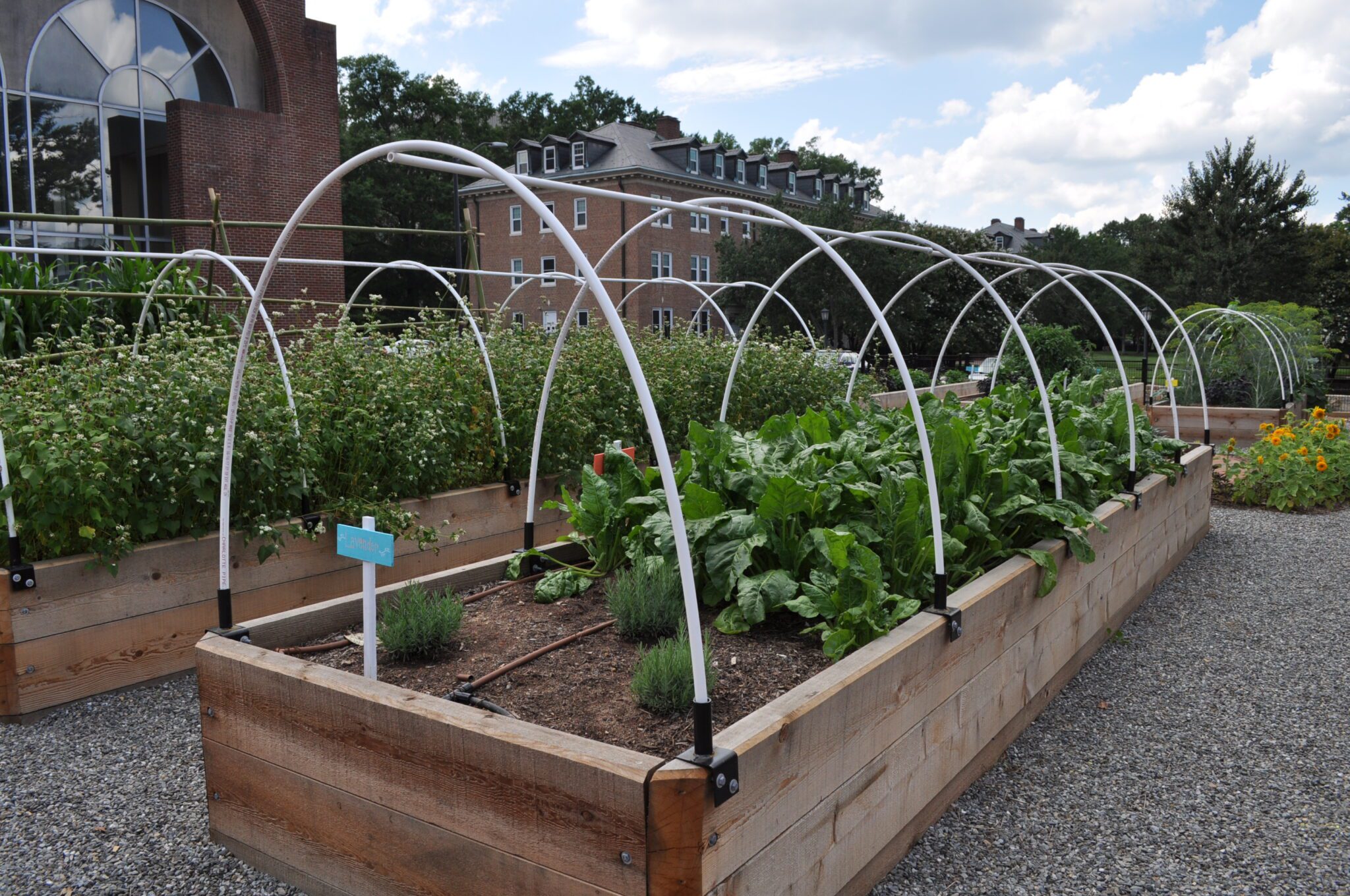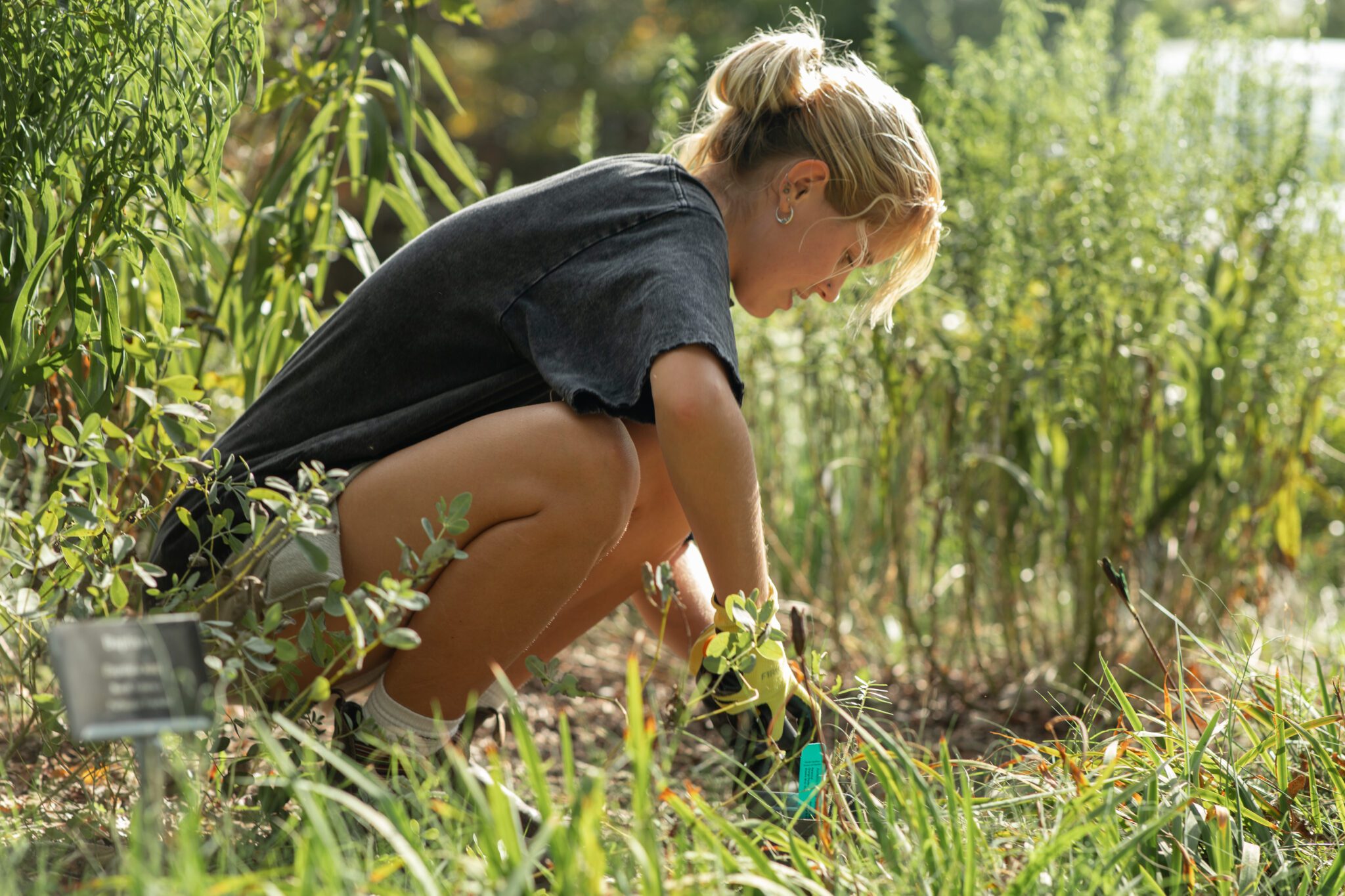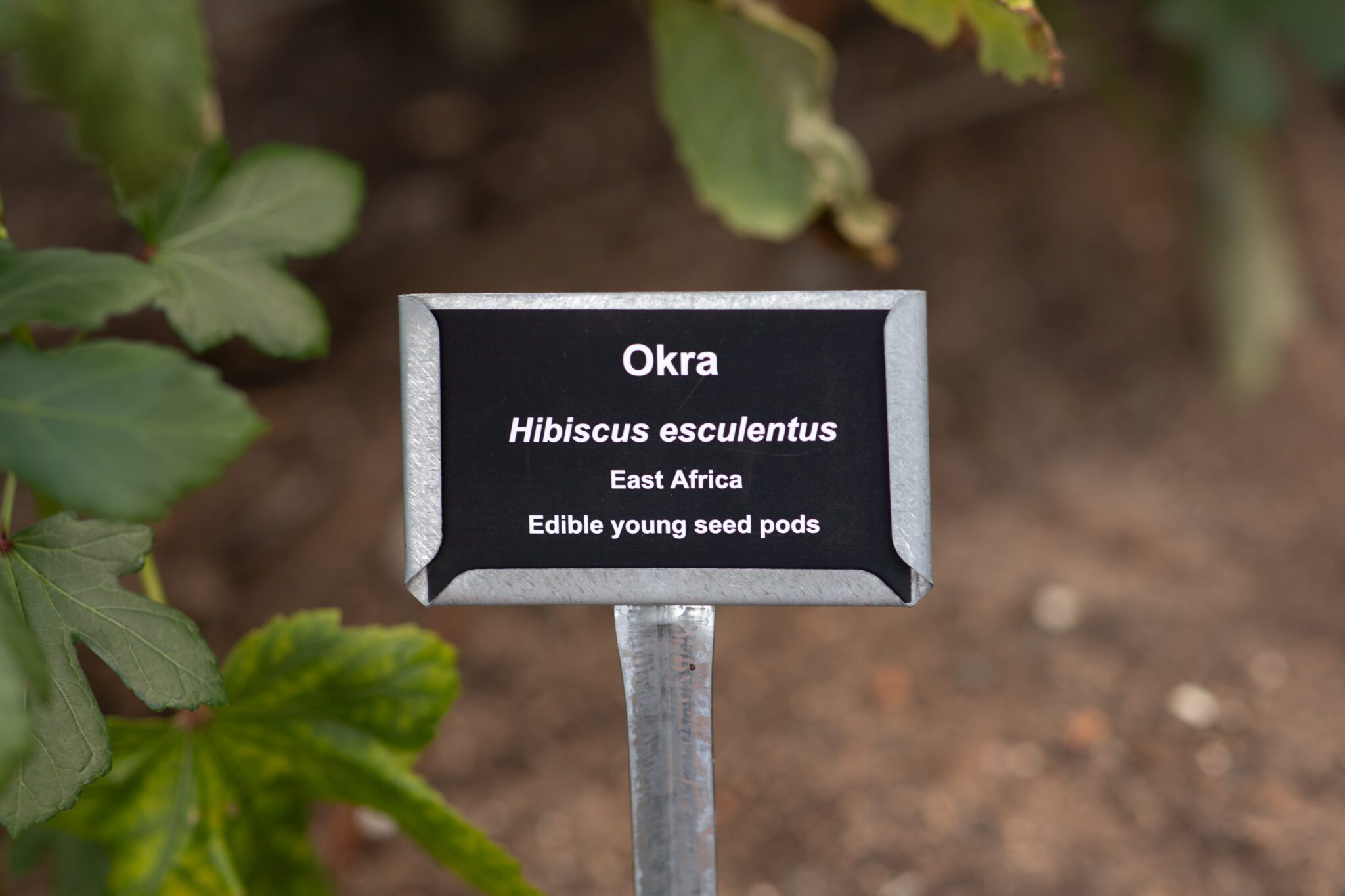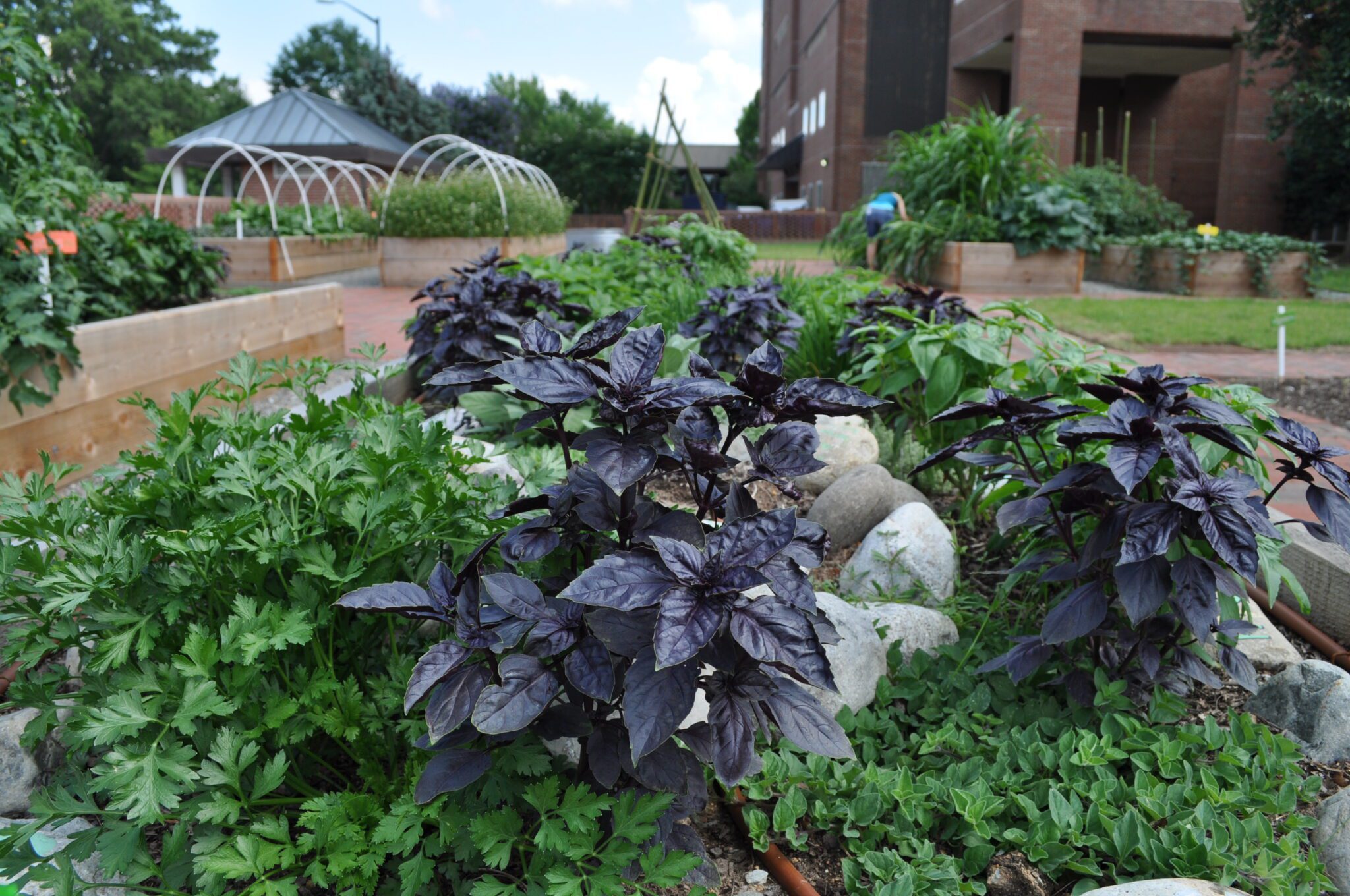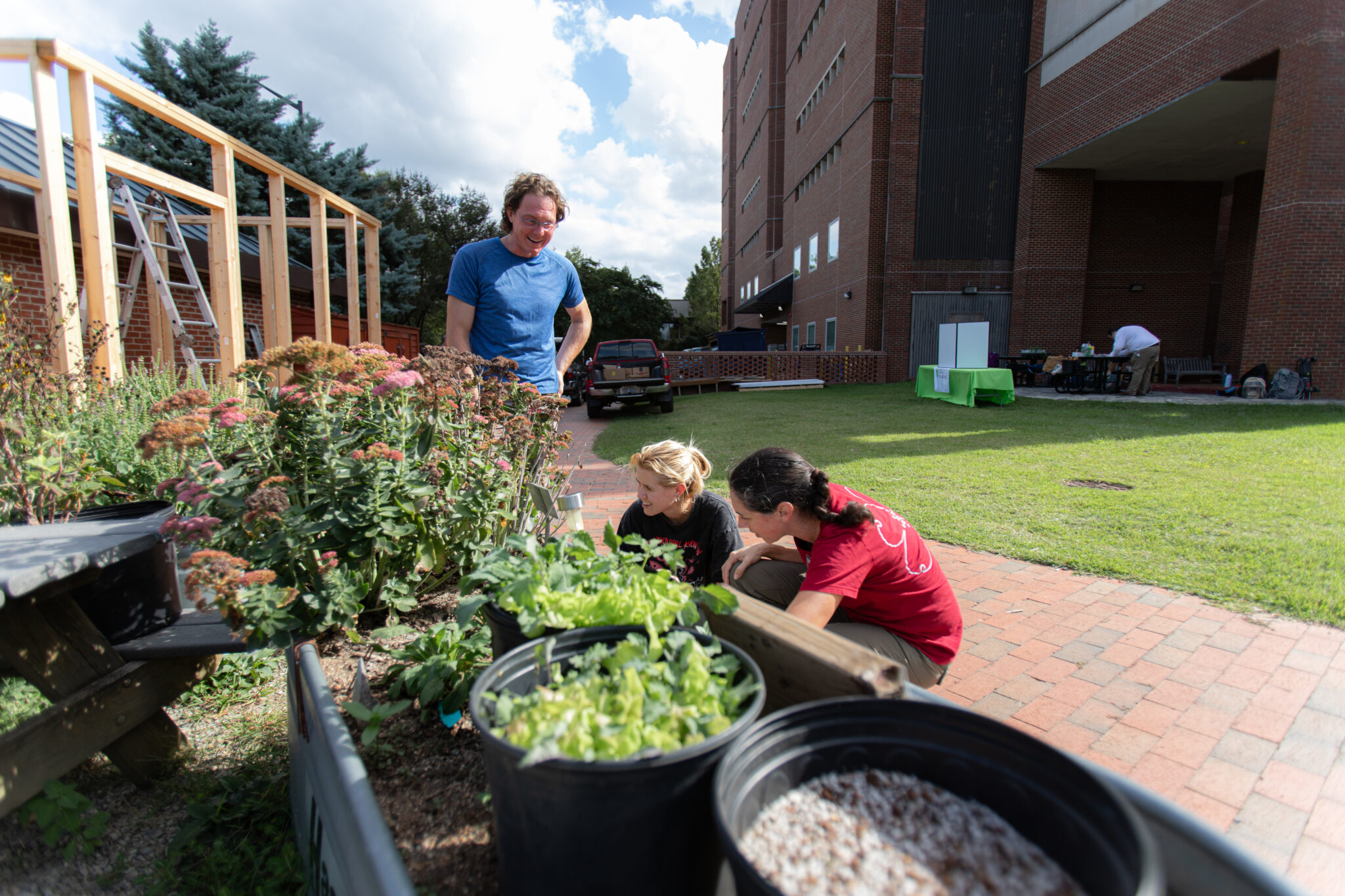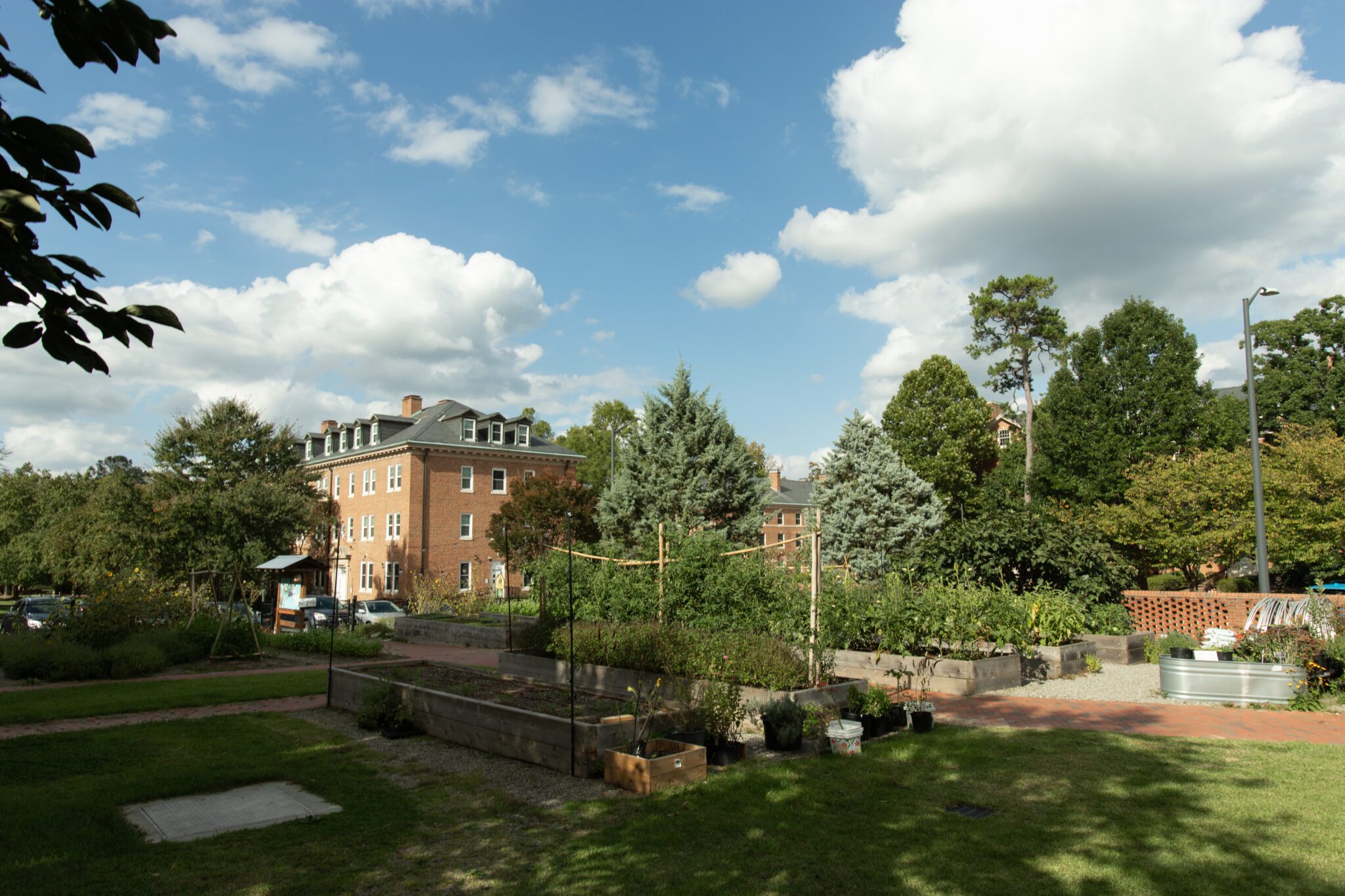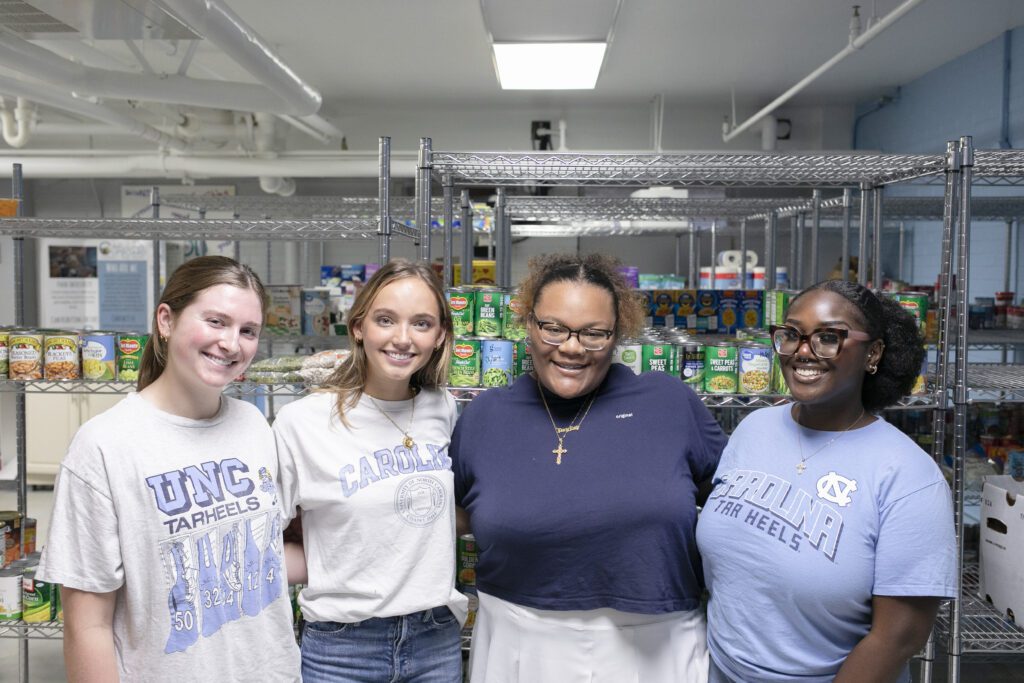
“I think we can serve an incredibly meaningful role in the lives of students who are facing food insecurity, making sure that they’re able to succeed and have an equal playing field with other students.”
— Carlisle Watts (second from the left) ’25, president of the Carolina Cupboard
By Terzah Dyer
UNC Student Affairs defines food insecurity as having limited, inconsistent or uncertain availability of safe and nutritionally adequate foods, or the limited, inconsistent or uncertain access to such food.
“As a University, I feel we are obligated to assist students in optimizing their health and well-being so they are in the best position to learn,” said Katherine Moore, former assistant dean of student affairs for the School of Nursing. “Aggressively battling food insecurity by providing readily available nutritious options is a highly effective prevention and intervention strategy.”
A fundamental part of Moore’s former role was leading student support services and programs like Jessica’s Cupboard, an on-campus food pantry for the School of Nursing. Establishing and maintaining Jessica’s Cupboard was, in her opinion, among the most critical student support strategies implemented since 2000. She noted that the programs fighting hunger on campus address student food insecurity in the most individualized and confidential manner possible.
“Adequate nutrition is a basic requirement for good health and strong cognitive performance,” Moore said. “Student learning is directly impacted by optimal cognitive functioning which, in turn, depends on sound nutritional intake, among other key factors.”
She explained students struggling with food insecurity tend to have lower GPAs; lower attendance rates; higher rates of depression, anemia and vitamin deficiencies; and higher recidivism.
“Surveys conducted nationally prior to the pandemic revealed food insecurity rates on four-year college campuses of around 30%,” Moore said. “Post pandemic data reveal the incidence worsening to more than 40%.”
With Carolina facing similar rates of undergraduate and graduate students experiencing food insecurity, it’s incredibly important for the Carolina community to be vigilant in providing resources and access to nutritious food without barriers.
For example, Moore recalled discovering that in the School of Nursing, students were trying to stretch their funds by reducing grocery purchases, and in turn food intake each day.
“We had several incidents in which students became ill — fainting episodes, dizziness, lightheadedness and nausea — during early morning class or clinicals, and when assessed, they often had low blood pressure and low blood glucose levels because they had skipped breakfast, or worse, had not eaten in over 24 hours,” she said.
The School of Nursing initially responded to the issue on a case-by-case basis, but it was clear a more comprehensive intervention was necessary, which is when Jessica’s Cupboard began.
The origin story of Jessica’s Cupboard is reflected across other on-campus programs fighting hunger. Here, we highlight four on-campus groups, including Jessica’s Cupboard, that are committed to reducing food insecurity at Carolina, directly impacting students experiencing hunger.
1. Carolina Cupboard
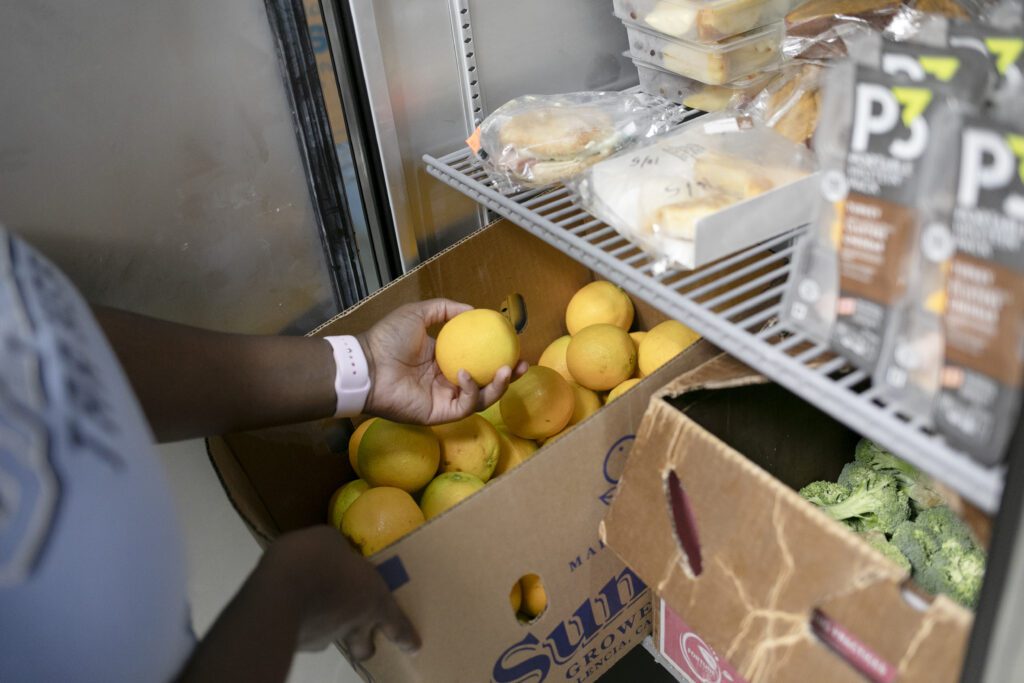
There are fridges in the cupboard to keep fresh produce cold.
The Carolina Cupboard is an on-campus food pantry that provides all students with food and supplies at no cost. Now located in the Student and Academic Services Building North, on the first floor in room 1221, the cupboard provides supplies to students who are food insecure, whether or not they qualify for SNAP or other food-assistance programs. Students only need to provide a valid UNC One Card and register to receive food.
Carolina Cupboard’s purpose is multidimensional, seeking to provide hunger-relief as well as educating, empowering and engaging the surrounding community on issues related to food insecurity, poverty, health and nutrition.
“We’re there for students facing food insecurity and try to provide a very open and welcome place for them to come,” said Carlisle Watts ’25, president of Carolina Cupboard. “There’s no limit on how many times students can come or how much food they take. We’re there to provide any assistance we can and we are happy and eager to help.”
Watts said the cupboard’s biggest goal is to be an open and supportive place that serves every member of the Carolina community.
Learn more about the Carolina Cupboard
2. CJ’s Cupboard
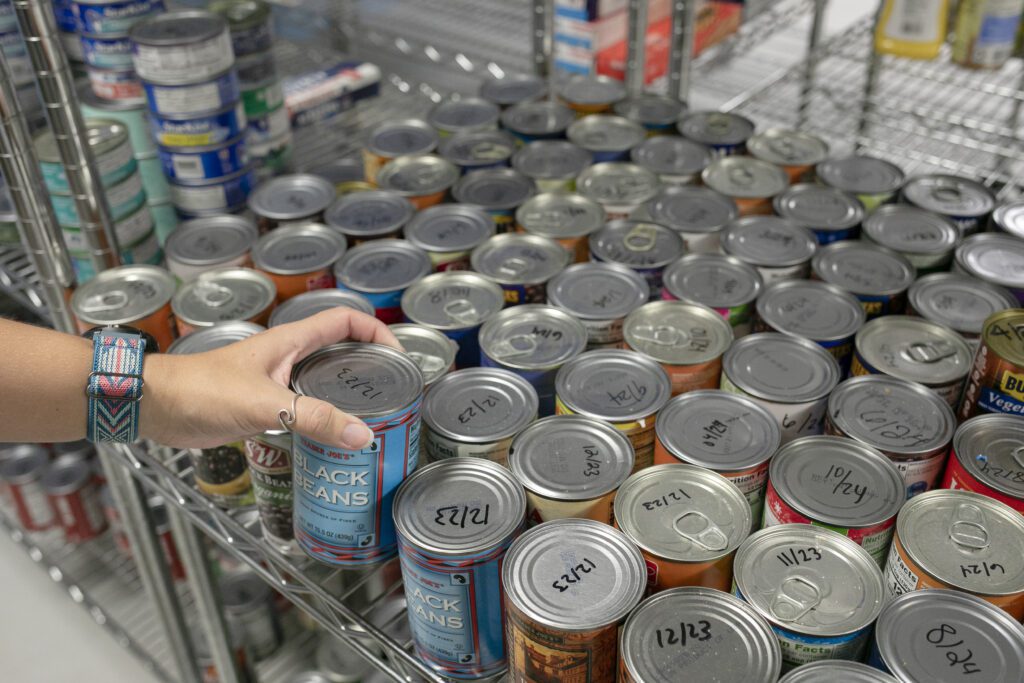
Goods like these can be found in the pantries.
CJ’s Cupboard is an on-campus food pantry, accessible to members of the UNC Gillings School of Global Public Health. Any student in UNC Gillings is welcome to access the cupboard for nourishing food or supplies they may need. The cupboard is located in 2210 McGavran-Greenberg Hall.
CJ’s cupboard offers a diverse range of stock, including nutrient-dense, non-perishable food as well as other goods like diapers, feminine supplies, soap and more.
The cupboard’s goal is to ensure its community has access to healthy and filling foods.
Find more information about CJ’s Cupboard
3. Jessica’s Cupboard
Jessica’s Cupboard is an on-campus pantry for nursing students. While the new nursing building’s construction is on-going, Jessica’s Cupboard is in a temporary space, split between the Student Affairs suite in 2800 and the first-floor break room in ITS Manning Hall. It was created in honor of Jessica Lambert Ward, a staff member in the Office of Student Affairs, who helped successfully connect with students who commonly experienced food insecurity and tried to manage it alone.
Access to Jessica’s Cupboard is as stigma-free as possible. It’s housed in a locked room, where all nursing students have One Card access on a 24/7 basis. Students are allowed to select the food/non-food items they need.
“Students have expressed their sincere appreciation for the ability to access the pantry when needed and especially after hours when they weren’t as likely to be seen/identified,” Moore said. “For these students who felt shame at being food-insecure, confidential access was imperative and helped maintain their personal dignity.”
The pantry has bottled water, juice and yogurt. It also has nutritious, non-perishable, shelf-stable food of all types available, including meats, vegetables, fruits, soups, cereal, some juices/beverages, and snacks. Students with specific dietary needs are encouraged to submit special requests.
There are also toiletries, feminine hygiene products and essential household products.
“For so many students the pantry has been a true lifeline,” Moore said. “Some students access the pantry’s offerings only a few times per semester, while others use the pantry each week.”
4. Edible Campus UNC
Edible Campus UNC is a program of the North Carolina Botanical Garden that creates working landscapes across UNC-Chapel Hill to facilitate campus community engagement in topics of food and agriculture sustainability. Production gardens are the primary focus. The biggest garden is located in the heart of campus directly behind Davis Library. An additional eight satellite gardens are scattered across campus. Edible Campus was started by Morehead-Cain Scholar Emily Auerbach ’15, who was concerned about food insecurity when she was a student.
The produce is free for anyone in the community. The distribution process is simple: Everything is free to anyone to harvest. A student could be walking by the garden, see a ripe fig and pick it off the tree.
“Hopefully, there’s some shift in mindset happening and the zero barrier helps people feel more ownership toward the landscapes around them,” said Kyle Parker, Edible Campus UNC program coordinator.
The gardens are maintained by Parker and a student leadership team that changes yearly. Edible Campus is highly reliant on volunteers throughout the year. The gardens are filled with vegetables, fruits, herbs and native pollinators.
“Food is a basic need,” said Parker. “You need to meet that need. If people don’t have their food needs met, it trickles down into negative consequences for everything in people’s lives. So, you’re making a difference when you’re feeding people.”
Outside of providing low barriers to accessing nutritious, organic food, the gardens are fostering community and positive mental health for the student volunteers and those utilizing the garden.
Find additional information at Edible Campus UNC
There are several additional community resources for individuals facing food insecurity. Food security means access by all people at all times to enough food for an active, healthy life. The work these groups are doing on campus is helping ensure all Tar Heel students have food security during their time at Carolina.
Inventory support for the pantries listed above is solely based on the generosity of the Carolina community. Monetary and product donations are what keeps these resources going, as well as volunteer support. It takes all of us working together to ensure our Tar Heel students have access to nutritious food, so they can be personally and academically successful.
Join the Carolina community to help fight hunger on campus by giving to the UNC Student Affairs Basic Needs Fund.




